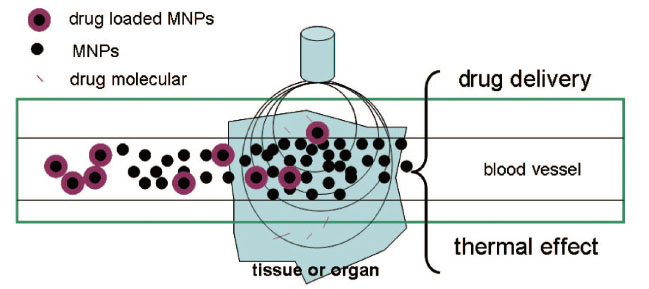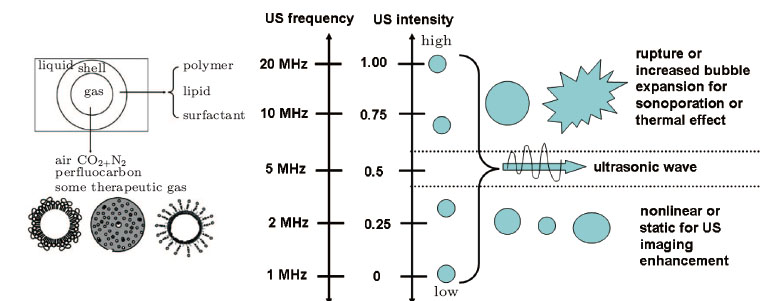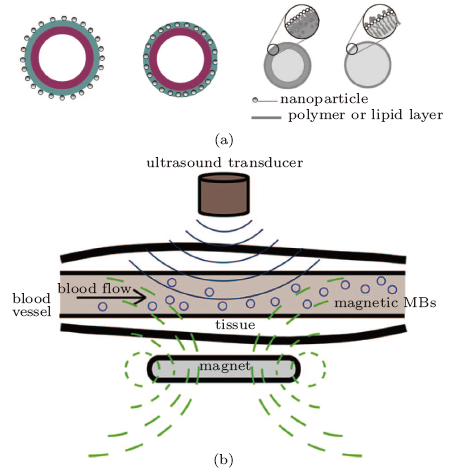近年来,随着微纳载体材料的不断发展,磁学纳米颗粒和微气泡已分别发展成为有效的医学影像造影剂和药物输送载体系统。融合两者的优点制备的携带磁学纳米颗粒的磁性微气泡载体材料,由于兼具优良的磁学特性和声学特性在生物医学应用领域得到了较广泛的关注和研究。本文主要论述了磁性微气泡的制备原理和方法,以及磁性微气泡的磁学和声学机理。在此基础上,对基于磁性微气泡多功能载体平台的超声、磁共振双模式显影,磁场和超声场等外场调控药物靶向释放,以及高分辨率多模式图像监控下的治疗效果评估等相关诊疗一体化生物医学应用研究进行了系统的综述。
Yang Fang, Gu Zhu-Xiao, Jin Xin, Wang Hao-Yao, and Gu Ning. Magnetic microbubble: A biomedical platform co-constructed from magnetics and acoustics. Chin. Phys. B, 2013, 22(10): 104301

Fig. 2. Schematic diagram of MNPs and their composites in hypothetical magnetic drug delivery system: the magnetic field gradient can capture magnetic carriers flowing in the circulatory system. Then MNPs can release the loaded drugs into the specific tissue or organ. The aggregation of MNPs can also produce thermal effect to treat disease.

Fig. 3. The schematic diagram of MBs’ structure and loading strategies of drugs, genes, and targeting peptide. At low US intensity, the MBs oscillate in a nonlinear fashion with minimal destruction, which can be used to enhance the US imaging. As the acoustic power increase, the
bubbles cannot compress and make the bubbles unstable until reaching a point of rupture, which can be viewed as the basis for therapeutic ultrasound.

Fig. 5. (a) Schematic diagram of the types of the MNPs embedded in the shell of the MBs. (b) Schematic plot of the ultrasound flow: When magnetic MB suspension is injected into the blood vessel and dual modal images obtained using an ultrasound and MR imaging probe. At the same time, the magnetic MBs can be controlled by both ultrasonic and magnetic field.